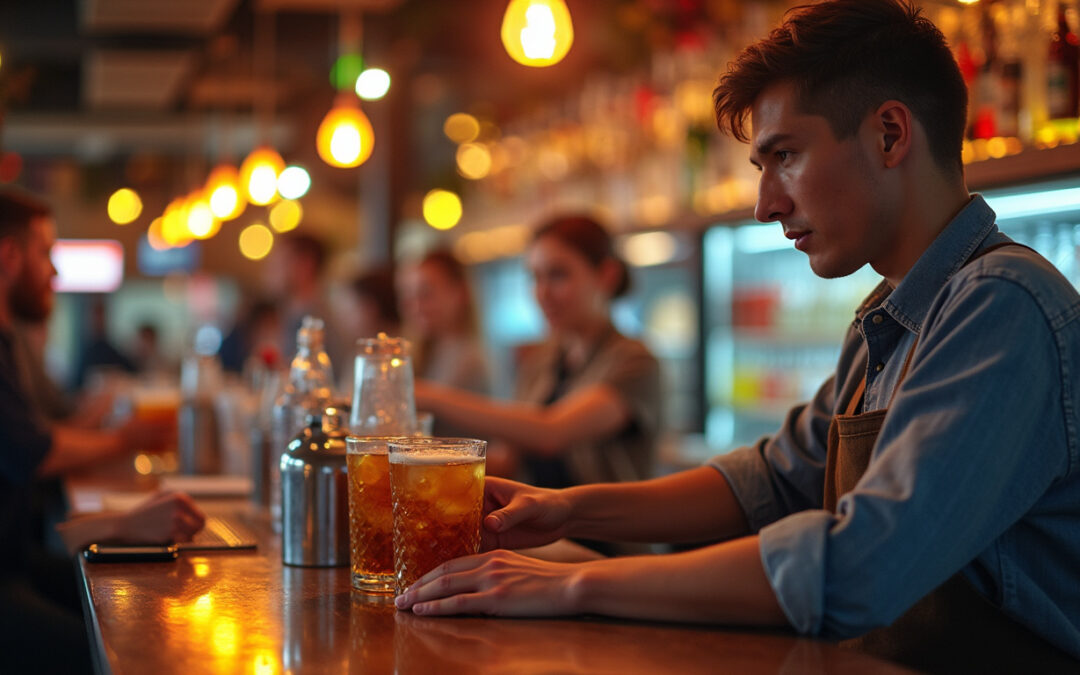Alcohol service matters in many bars and clubs. When service goes wrong, problems follow. Problems include legal issues, a poor reputation, and safety risks. That is why we need to train alcohol servers. This training helps lower risks. It also makes sure servers can handle alcohol service well. In this article, we share simple training tips that protect both servers and businesses.
Understanding Alcohol Server Safety Training
Alcohol server safety training is a program that teaches servers, bartenders, and managers. It covers laws, safe practices, and duties when serving alcohol. The training helps stop over-serving, serving minors, and unsafe care for intoxicated guests.
Training in the right way is a smart move. It not only keeps people safe but also helps protect your business from lawsuits and legal trouble.
Why Alcohol Server Safety Training Is Critical for Liability Prevention
If you do not follow alcohol service laws, you can face penalties, fines, or even criminal charges. In many places, both the business and the individual server face legal trouble when a guest is harmed by careless service. This can happen when a guest drives drunk, starts a fight, or gets injured.
Good training shows how to spot intoxication, check IDs, and calm tense situations. Following these tips lowers risks. It also builds a culture of care and skill that customers and regulators respect.
Essential Tips for Effective Alcohol Server Safety Training
To build a strong training program that cuts liability, use these tips:
1. Start with State and Local Laws
Alcohol laws change by location. Your training must include the legal drinking age, permitted sale hours, and server duties in your area. Check and update these rules often.
2. Educate on Identifying Fake IDs and Age Verification
Serving underage customers brings risk. Train servers to check IDs carefully. Teach them to spot signs of tampering and inconsistencies. Instruct them to always ask for a government-issued ID.
3. Train on Recognizing Signs of Intoxication
Servers need to see signs of intoxication early. They must notice slurred speech, poor coordination, or aggressive behavior. Recognizing these signs helps stop a problem before it grows.

4. Implement Clear Protocols for Refusing Service
It can be hard to say no to a customer. Train servers to refuse service politely but firmly. Teach them to handle conflict well while keeping everyone safe.
5. Emphasize De-escalation and Conflict Management Skills
Alcohol can lead to tense moments. Teach your team simple ways to defuse tense situations. These skills help avoid harm and legal trouble.
6. Provide Emergency Response Training
Training must include what to do if an incident occurs. Servers should know how to call emergency services, give simple first aid, and document events to protect the business.
7. Use Interactive and Ongoing Training Methods
Talks alone do not work well. Use interactive methods like role-playing, quizzes, and scenario analysis. Regular refresher courses help keep skills sharp and current.
The Benefits of Proper Alcohol Server Safety Training
Good training offers many advantages beyond lowering risks:
- Improved customer experience: Safe service makes the environment better.
- Reduced incidents: Fewer fights, accidents, and disturbances smooth operations.
- Legal compliance: Meeting legal standards helps keep your licenses and avoids fines.
- Enhanced reputation: A focus on safety and professionalism wins customer trust.
Alcohol Server Safety Training Checklist
Here is a simple checklist for your training program:
- Overview of alcohol laws and rules
- Steps for checking age and spotting fake IDs
- Tips to spot clues of intoxication
- Rules for refusing service
- Skills for de-escalation and handling conflict
- Steps for emergency response
- Methods for proper documentation and reporting
- Role-playing exercises
- Regular refresher training sessions
FAQs About Alcohol Server Safety Training
What is the primary focus of alcohol server safety training?
The training shows servers how to follow laws and care for guests. It covers spotting intoxication, checking age, and stopping over-serving. These skills help reduce risk and legal issues.
How often should alcohol server safety training be conducted?
Provide training when new staff join and then give refresher sessions. Generally, trainings happen every 6 to 12 months or when laws or policies change.
Can alcohol server safety training reduce the likelihood of legal action?
Yes. Good training makes servers act well and follow laws. This lowers the chance of incidents that lead to lawsuits or penalties. It also shows that your business takes safety seriously.
Final Thoughts
Alcohol server safety training is not just a rule to follow; it is an important step for protecting customers, staff, and the business. By training your servers well, you reduce risks, follow laws, and build a good reputation. Add these tips to your training programs for a safer place.
For more help with alcohol server programs, check resources like the TIPS Training website. This site offers complete courses to support responsible alcohol service.


